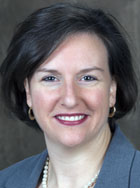A recently released Department of Defense report shows a 50 percent increase in documented PTSD cases in 2007. Monica Matthieu, Ph.D., an expert on veteran mental health and an assistant professor of social work at Washington University in St. Louis, says that “While it is important to know the number of men and women returning from war with PTSD (post-traumatic stress disorder), it is also critical that veterans and their family members know where to go to access mental health services.” Matthieu is available to discuss available services as well as emerging treatments for PTSD.

Matthieu, notes that the Department of Veterans Affairs’ VA Medical Centers and Vet Centers have specialists on staff that assist military service members who have returned home and find that they may be struggling with their recovery and readjustment back to civilian life.
“PTSD does not affect everyone that goes to war, but for some, it can go unrecognized and its symptoms ignored for a long time,” she says.
“Often the family, friends, and military buddies closest to our veterans are the ones that find the resources for veterans needing assistance. They are the bedrock of support for many veterans and are usually the ones that notice the chronic difficulties sleeping, concentrating and reacting as if they were back in a war zone. I recommend a call to the VA center closest to home to make an appointment to check out what services they have to offer.”
Matthieu says that there are a number of evidence-based approaches used to treat PTSD, from cognitive behavioral therapies to the use of certain medications. In addition, recent Institute of Medicine scientific reviews have determined there is reasonable empirical support for the use of exposure therapies in the treatment of PTSD.